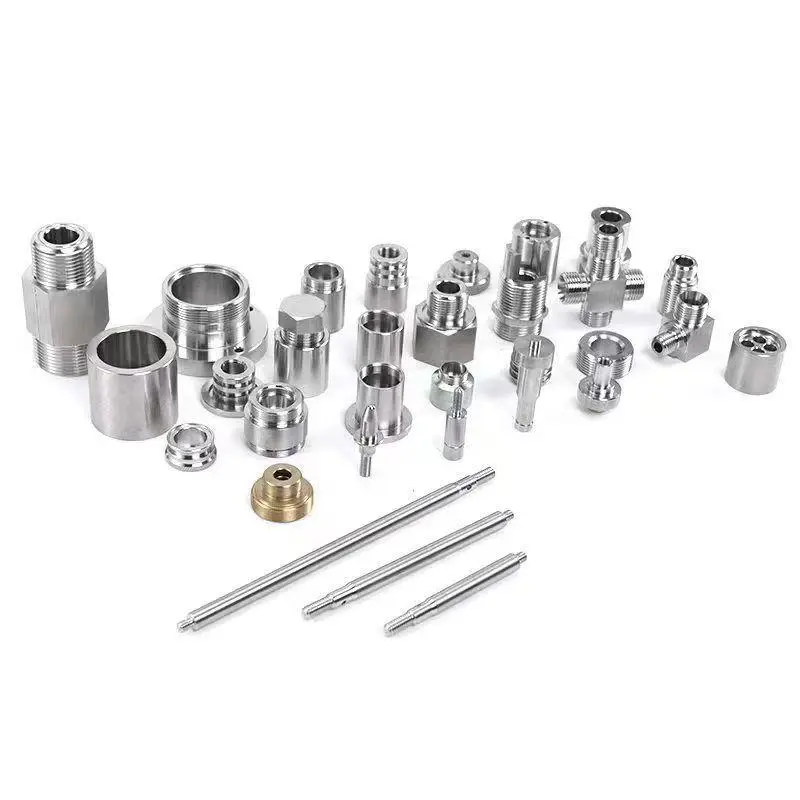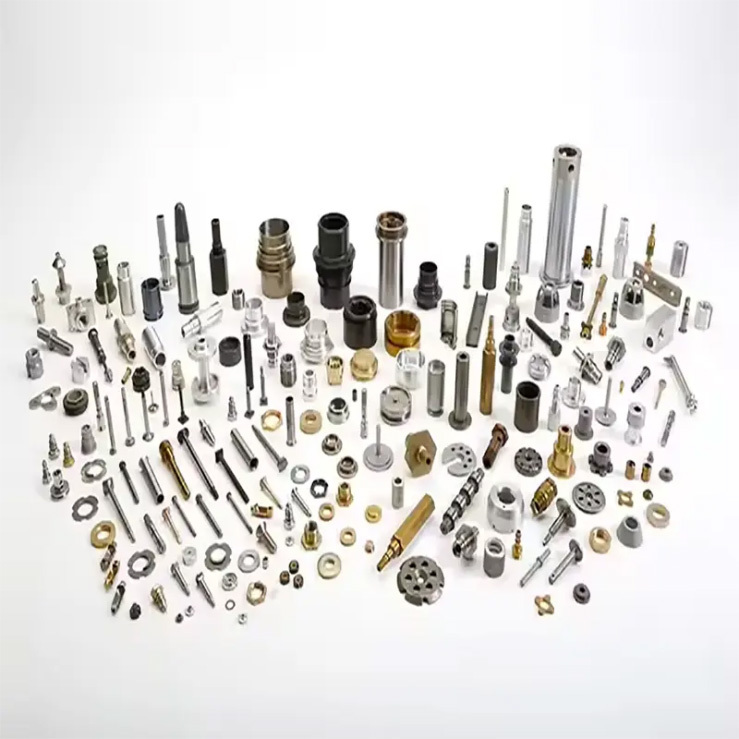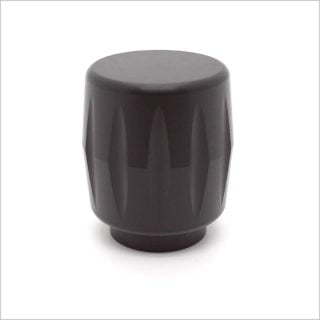The Future of Manufacturing: CNC Swiss Machined Stainless Steel Parts
Published Time:
2025-09-28
The Future of Manufacturing: CNC Swiss Machined Stainless Steel Parts
Manufacturing is on the brink of a revolution, driven by advanced technologies and innovative processes. At the forefront of this transformation is CNC (Computer Numerical Control) Swiss machining, a technique that has redefined the production of stainless steel parts. In this comprehensive exploration, we delve into how CNC Swiss machining is shaping the future of manufacturing, its advantages, applications, and the potential it holds for industries across the globe.
Table of Contents
- Introduction to CNC Swiss Machining
- What is CNC Swiss Machining?
- Advantages of CNC Swiss Machining
- Materials Used in CNC Swiss Machining
- Applications of CNC Swiss Machined Parts
- Future Trends in CNC Swiss Machining
- Choosing the Right Manufacturer for CNC Swiss Machined Parts
- Conclusion
- FAQs
Introduction to CNC Swiss Machining
The evolution of manufacturing processes has made it essential for industries to adapt to changing demands and innovations. CNC Swiss machining emerges as one of the most advanced techniques for producing high-precision parts, especially in stainless steel. This method not only enhances efficiency but also substantially increases the quality of finished products. Understanding CNC Swiss machining is key to grasping its significance in today’s manufacturing landscape.
What is CNC Swiss Machining?
CNC Swiss machining is a highly efficient manufacturing process that utilizes computer numerical control to produce intricate, high-precision components. Originally developed for watchmaking in Switzerland, this method has found applications across various industries, including automotive, aerospace, and medical devices.
The process involves the use of a CNC Swiss lathe, which allows for the simultaneous machining of multiple features. Unlike traditional lathes, which often require secondary operations, CNC Swiss machines can perform various functions like turning, milling, and drilling in one setup. This capability significantly reduces production time and enhances accuracy.
Advantages of CNC Swiss Machining
CNC Swiss machining offers a host of advantages that make it a preferred choice for producing stainless steel parts:
1. Precision and Accuracy
CNC Swiss machines can achieve tolerances as tight as ±0.001 inches. This precision is crucial for industries where even the slightest variations can lead to significant failures.
2. Enhanced Efficiency
The ability to perform various machining operations in a single setup minimizes downtime and enhances overall production efficiency. This leads to quicker turnaround times, meeting tight deadlines without compromising quality.
3. Capability to Work with Complex Designs
The advanced programming capabilities of CNC machines allow manufacturers to create complex geometries and intricate designs that would be challenging or impossible with traditional machining methods.
4. Reduced Waste
CNC Swiss machining processes are designed to maximize material usage. The efficiency of these machines minimizes scrap and waste, promoting sustainability in manufacturing.
5. Flexibility and Adaptability
CNC Swiss machines can be easily reprogrammed to accommodate new designs or modifications in existing products. This flexibility is invaluable in an ever-changing marketplace.
Materials Used in CNC Swiss Machining
While CNC Swiss machining is versatile and can work with various materials, stainless steel stands out due to its strength, durability, and corrosion resistance.
Types of Stainless Steel:
- **Austenitic Stainless Steel**: This type is known for its excellent corrosion resistance and formability, making it a preferred choice for many applications.
- **Ferritic Stainless Steel**: Ferritic alloys offer good stress corrosion resistance and are often used in applications requiring high resistance to oxidation.
- **Martensitic Stainless Steel**: Known for its hardness and strength, martensitic stainless steel is widely used in applications requiring high wear resistance.
Each type of stainless steel has unique properties that make it suitable for specific applications, making it essential to select the right material for the job.
Applications of CNC Swiss Machined Parts
CNC Swiss machined parts find applications in various industries thanks to their precision and versatility:
1. Aerospace Industry
In aerospace, components require high strength-to-weight ratios and extreme tolerance levels. CNC Swiss machining produces critical parts like brackets, housings, and fasteners essential for aircraft safety and performance.
2. Medical Devices
The medical field relies on precision-engineered parts for devices such as surgical instruments and implants. CNC Swiss machining ensures accuracy and reliability, crucial for patient safety.
3. Automotive Industry
Automakers use CNC Swiss machined components for parts like fuel injectors, transmission components, and various fasteners, where durability and precision are paramount.
4. Electronics
In the electronics sector, manufacturers require intricate components that fit tightly within devices. CNC Swiss machining allows for the production of connectors, housings, and other electronic components with high precision.
Future Trends in CNC Swiss Machining
The future of CNC Swiss machining looks promising, with several trends set to shape the industry:
1. Integration of Smart Technology
As Industry 4.0 continues to evolve, the integration of smart technology into CNC Swiss machining will enhance productivity and reduce downtime. Real-time monitoring and predictive maintenance will become standard practices.
2. Increased Automation
Automation in CNC Swiss machining will further streamline processes, reduce human error, and lower labor costs. Collaborative robots (cobots) will assist in operations, allowing skilled workers to focus on more complex tasks.
3. Sustainable Manufacturing Practices
With a growing emphasis on sustainability, the future will see a shift towards eco-friendly machining practices, including the use of biodegradable coolants and energy-efficient machines.
4. Advanced Material Development
The development of new materials with enhanced properties will expand the capabilities of CNC Swiss machining, leading to innovative applications and products.
Choosing the Right Manufacturer for CNC Swiss Machined Parts
Selecting the right manufacturer for CNC Swiss machined parts is critical to ensuring quality and meeting project specifications. Consider the following factors:
1. Experience and Expertise
Look for manufacturers with a proven track record in CNC Swiss machining. Their experience will often translate to better quality and efficiency.
2. Technology and Equipment
Ensure that the manufacturer uses advanced CNC Swiss machines equipped with the latest technology for optimal performance.
3. Quality Assurance Processes
A reputable manufacturer should have stringent quality control measures in place to guarantee the accuracy and reliability of their parts.
4. Customer Support
Effective communication and support are essential for addressing any concerns or changes during the manufacturing process.
Conclusion
CNC Swiss machining is revolutionizing the manufacturing landscape by providing unparalleled precision, efficiency, and versatility, particularly in the production of stainless steel parts. As industries continue to evolve, embracing this technology will be essential for maintaining competitive advantages. By understanding its benefits and applications, businesses can position themselves for success in a rapidly changing environment.
FAQs
1. What is CNC Swiss machining used for?
CNC Swiss machining is primarily used for producing high-precision components in industries such as aerospace, automotive, medical devices, and electronics.
2. How does CNC Swiss machining differ from traditional machining?
CNC Swiss machining allows for multiple operations to be performed in a single setup, increasing efficiency and precision compared to traditional machining methods.
3. What materials can be machined using CNC Swiss technology?
CNC Swiss machining can work with various materials, but it is particularly effective for stainless steel due to its strength and versatility.
4. What are the benefits of using CNC Swiss machining for stainless steel parts?
Benefits include high precision, reduced waste, enhanced efficiency, flexibility in design, and the ability to handle complex geometries.
5. How can I choose the right manufacturer for CNC Swiss machined parts?
Consider factors such as experience, technology, quality assurance processes, and customer support when selecting a manufacturer.
By understanding and leveraging the capabilities of CNC Swiss machining, businesses can navigate the future of manufacturing with confidence and innovation.
Previous Page
Previous Page
NewsCenter
Beijing Pafinal Precision Machinery Co., Ltd.
Email:sales@pafinal.com

Address: No. 239 Huanhe South Road, Tianjin Pilot Free Trade Zone (Airport Economic Zone), Tianjin
中企跨境-全域组件
制作前进入CSS配置样式
sales@pafinal.com:
Whatsapp:
在线客服添加返回顶部
图片alt标题设置: PAFINAL
表单验证提示文本: Content cannot be empty!
循环体没有内容时: Sorry,no matching items were found.
CSS / JS 文件放置地




 2025-09-28
2025-09-28


